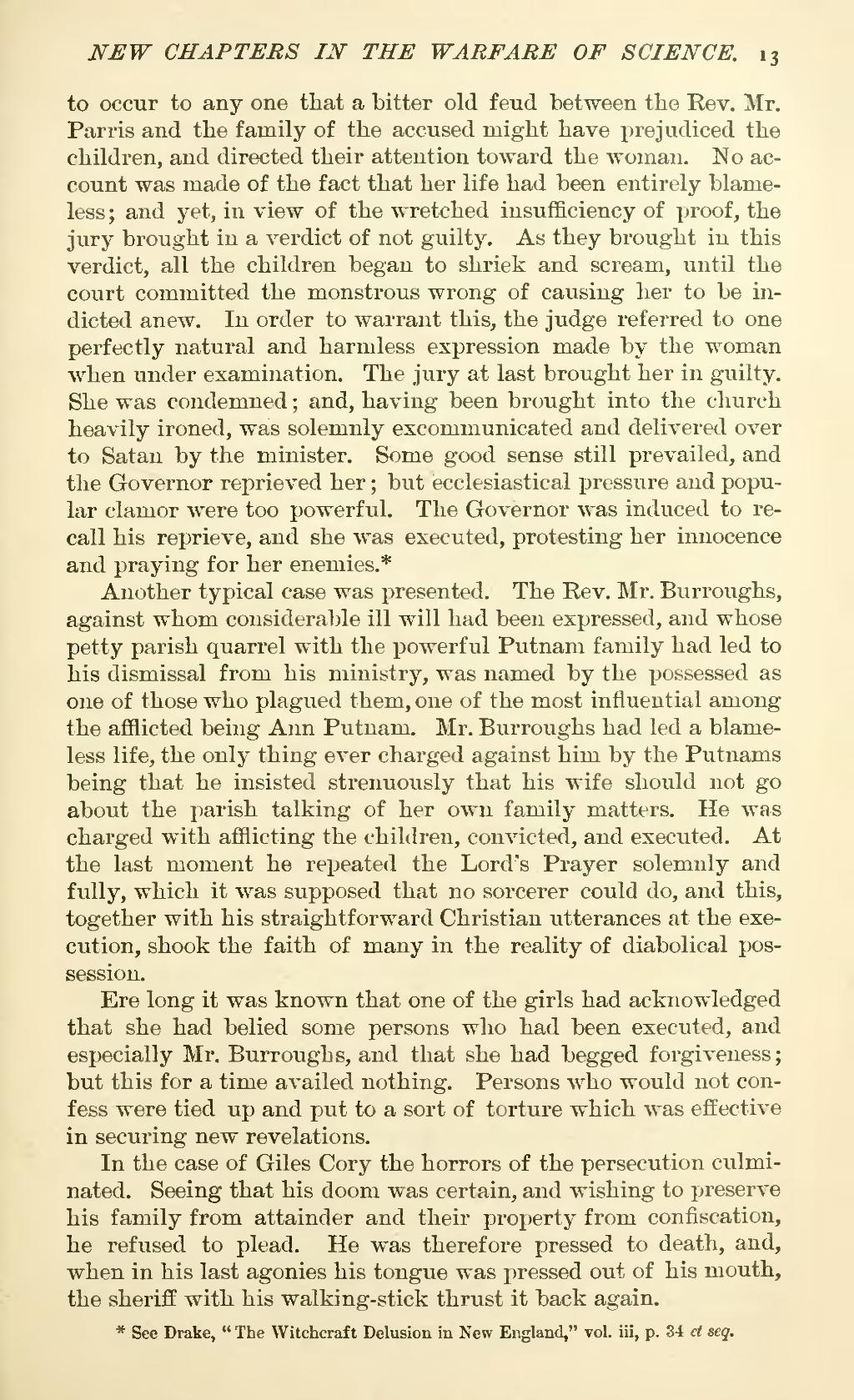to occur to any one that a bitter old feud between the Rev. Mr. Parris and the family of the accused might have prejudiced the children, and directed their attention toward the woman. No account was made of the fact that her life had been entirely blameless; and yet, in view of the wretched insufficiency of proof, the jury brought in a verdict of not guilty. As they brought in this verdict, all the children began to shriek and scream, until the court committed the monstrous wrong of causing her to be indicted anew. In order to warrant this, the judge referred to one perfectly natural and harmless expression made by the woman when under examination. The jury at last brought her in guilty. She was condemned; and, having been brought into the church heavily ironed, was solemnly excommunicated and delivered over to Satan by the minister. Some good sense still prevailed, and the Governor reprieved her; but ecclesiastical pressure and popular clamor were too powerful. The Governor was induced to recall his reprieve, and she was executed, protesting her innocence and praying for her enemies.[1]
Another typical case was presented. The Rev. Mr. Burroughs, against whom considerable ill will had been expressed, and whose petty parish quarrel with the powerful Putnam family had led to his dismissal from his ministry, was named by the possessed as one of those who plagued them, one of the most influential among the afflicted being Ann Putnam. Mr. Burroughs had led a blameless life, the only thing ever charged against him by the Putnams being that he insisted strenuously that his wife should not go about the parish talking of her own family matters. He was charged with afflicting the children, convicted, and executed. At the last moment he repeated the Lord's Prayer solemnly and fully, which it was supposed that no sorcerer could do, and this, together with his straightforward Christian utterances at the execution, shook the faith of many in the reality of diabolical possession.
Ere long it was known that one of the girls had acknowledged that she had belied some persons who had been executed, and especially Mr. Burroughs, and that she had begged forgiveness; but this for a time availed nothing. Persons who would not confess were tied up and put to a sort of torture which was effective in securing new revelations.
In the case of Giles Cory the horrors of the persecution culminated. Seeing that his doom was certain, and wishing to preserve his family from attainder and their property from confiscation, he refused to plead. He was therefore pressed to death, and, when in his last agonies his tongue was pressed out of his mouth, the sheriff with his walking-stick thrust it back again.
- ↑ See Drake, "The Witchcraft Delusion in New England," vol. iii, p. 34 d seq.

